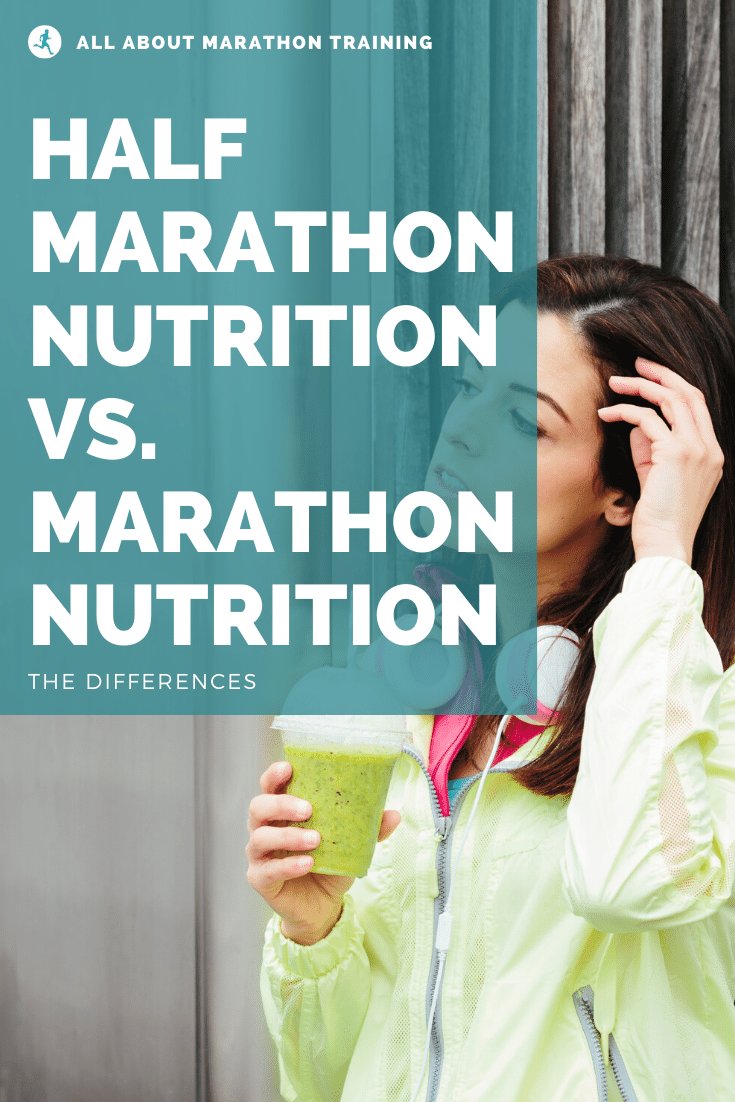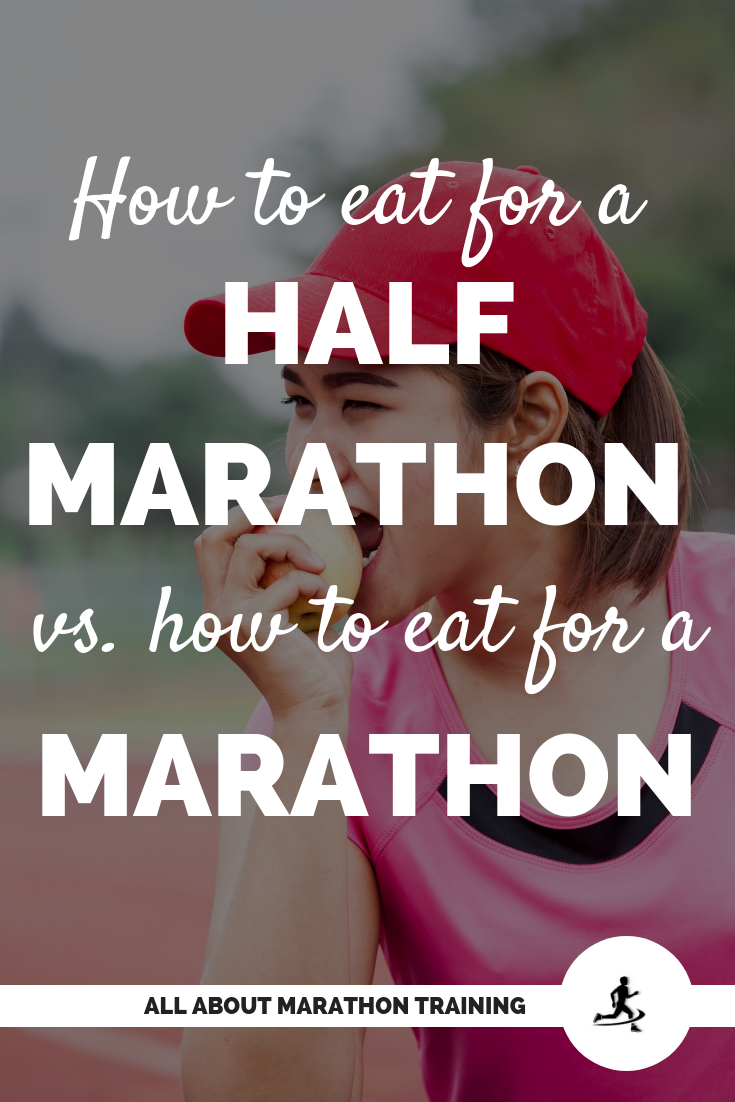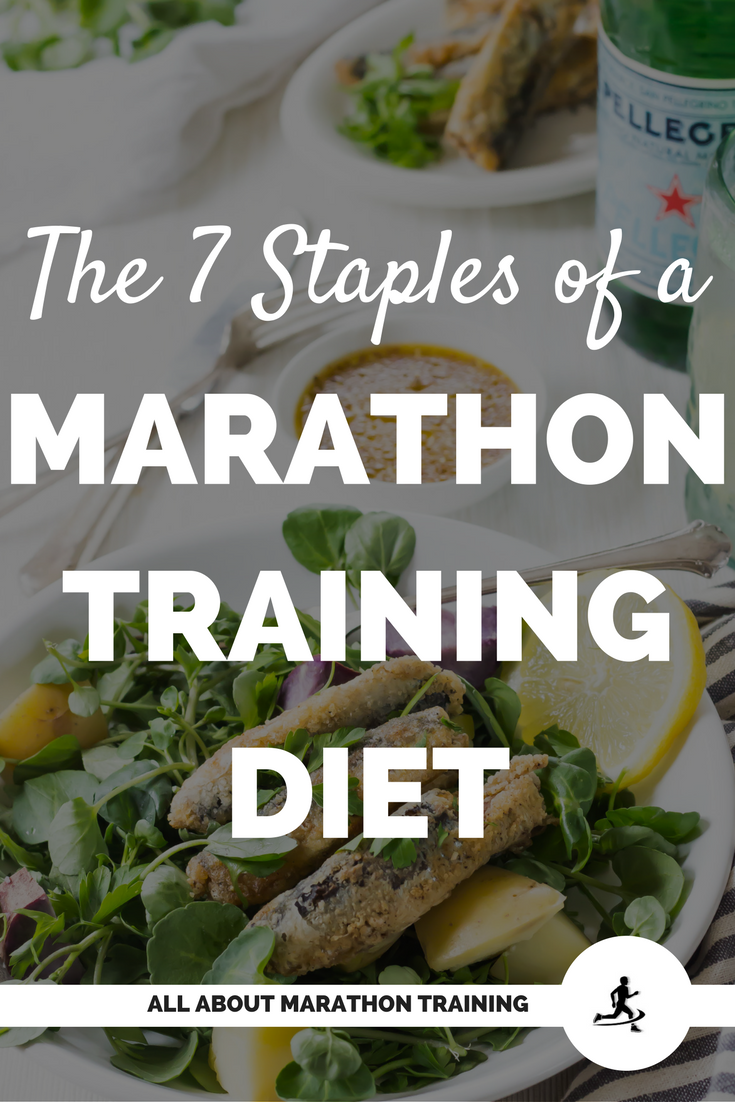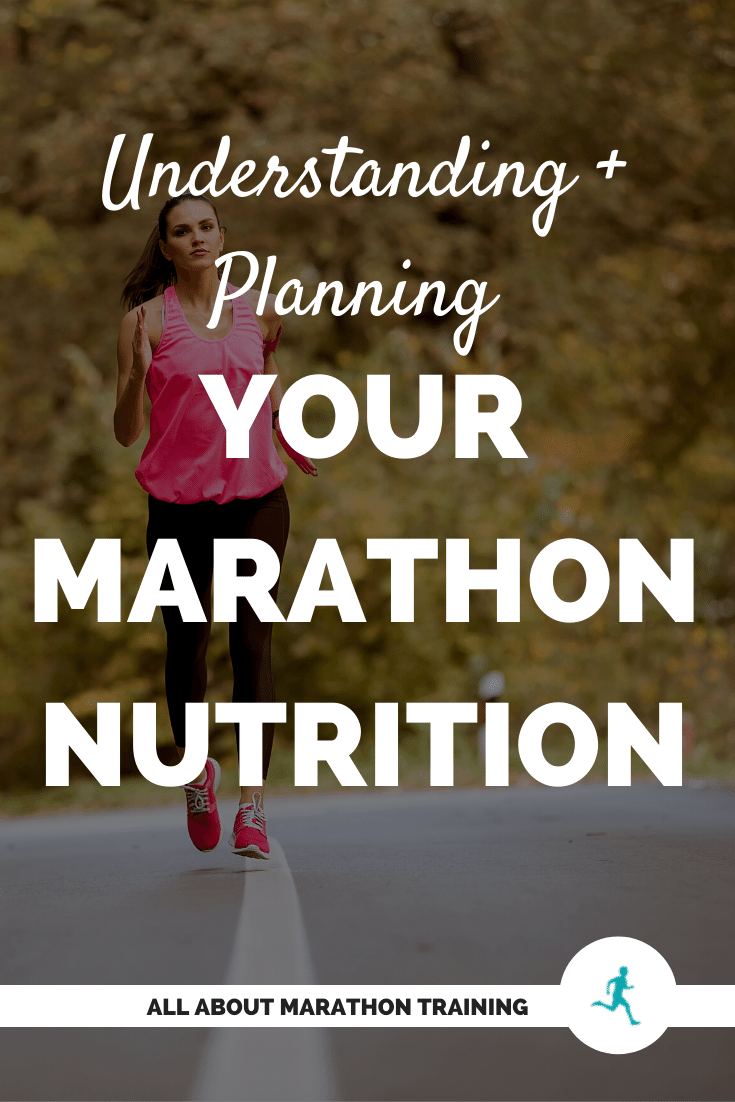Nutrition for Runners: Half Marathon Training vs. Marathon Training Diet
Nutrition for runners should always be specific to what their goals are.
If you are trying to lose weight, gain weight, body build, have a healthy pregnancy, detox, whatever it is you should always look at the end result that you want and work back from there to decide the route that you need to take in your nutrition at THAT point in time.
No way of eating is going to work for you 100% of the time.
Of course this is no different when you are running.
You experience different running seasons in your life.
For example:
- is your goal to stick to a running routine? Perhaps you are running 3 times a week for 30 minutes?
- are you trying to run for weight loss goals?
- Are you training for a 5K? 10K? Half Marathon? Marathon?
Different race distances require different things in terms of nutrition.
A lot of long distance runners naturally progress from training and running a half marathon to then training and running a full marathon.
On this page:
Let’s talk specifically about how your nutritional needs and your half marathon diet should transition into your full marathon training diet.
Are there nutrition for runners differences? You bet!
Here are the differences in nutrition for runners depending on if your are running a half or a full marathon:
1. Your macro-nutrient needs will change.
Let’s back up a little bit here.
All food is made up of 3 macro-nutrients:
- carbohydrates
- fat
- proteins
If we are focusing on athletes, the macro-nutrient should be dominant to the fuel that they burn in the sport that they are training in.
Remember, our goal is always sport specificity!
Therefore, a sumo wrestler would mainly have a fat-dominant diet, an Olympic power lifter would want to have a protein dominant diet but a long distance runner will want to have a carbohydrate dominant diet.
Carbohydrates are what fuels our running and the more intense our running pace is the more we will need.
The flip side of this is also that the more miles that we are running per week the more carbohydrates we will need to sustain our mileage and intensity levels.
So it would make sense that we would be running more miles while training for a marathon than when we are training for a half marathon, therefore we would want to up our carbohydrate intake.
Most of the time, runners should have a carbohydrate dominant diet that consists of about 55-65% of the foods they eat.
Lower if they are training for a half marathon and higher if they are training for a full marathon.
Bet you didn't know that nutrition for runners should actually include so many carbs?! :)
2. Energy drinks are something that both half marathoners and marathoners need but it can serve a different purpose.
Any time that a runner is going to be out on the roads or on their treadmill for over an hour they should bring along a high carbohydrate energy drink.
Half Marathoners:
When training for a half marathon though, you usually are not training above 10 or 11 miles.
Therefore, even if the drink might not serve for fuel later in that run (if you are running maybe 10 miles and it takes you between 1:30:00 and 1:45:00 to complete) then it will at least start your recovery process and glycogen replacement so that you are ready for your next run.
You will not be completely burning through your carbohydrate stores and so it’s main importance is in jump starting recovery.
Marathoners:
During marathon training runs though, your energy drink will serve to start replenishing carbohydrates that you need to keep up your intensity and pace during later miles of that same long run.
If you have a scheduled long run that might take you anywhere from 2 to even 3 hours then you will want to be replacing your carbohydrates so that you can keep going at the 2 hour and 45 minute mark.
This is where the EAT LIKE A MARATHONER nutrition for runners guide gives you extreme value in that you will calculate how many carbohydrates YOUR body can store, what mile YOU will “hit the wall” (burn through those carbs) and need to refuel whether you are on a training run or during the race itself.
Everybody is different and depending on your size, gender, intensity, and mileage your needs will change and are only specific to you!
There is power in knowledge!
3. Carbo-loading should look different between a marathon vs. a half marathon.
This is the main difference between preparing for a half marathon race vs. a marathon race.
Half Marathoners:
As a half marathoner you honestly do not need to implement a carbo-loading plan.
You probably aren’t running far enough to deplete your glycogen (stored carbohydrates in the body) stores during the race and therefore do not run the risk of hitting the wall or “bonking” unless you are are extremely lean and are running at a high intensity pace.
(The calculators in the EAT LIKE A MARATHONER Nutrition for runners course will show you if you do run the risk of hitting the wall before the half marathon distance is through if you do not carbo-load before a half marathon.)
Marathoners:
As a marathoner, however, you will definitely want to be conscious about getting those carbohydrates in before the race through a carbo-loading plan.
If you fail to carbo-load (get those glycogen stores in your body to max or near-max capacity) then you are almost sure to hit the wall during the marathon race.
Of course having a race refuel plan will help you to avoid the wall but you may need to ingest more carbohydrates than normal and hope for fast absorption.
The best bet for marathoners is to implement a 3-5 day carbo-loading plan before their marathon, focus on a carbohydrate hefty pre-race meal and plan out a solid race refuel plan.
In conclusion
As you can see, the marathoner has more work cut out for him.
He needs to make sure that he is being purposeful in what he is eating and drinking during that crucial week before his marathon and during the race itself.
There are too many miles to be run and you have put in too many long training runs to wing it.
Nutrition for runners training for the marathon is not something to be lightly brushed off.
Related Pages to Nutrition for Runners during the Marathon vs. Half Marathon Training:
👋Sign up to receive the free printable strength exercises for runners: 👇
 |
As featured on:








New! Comments
Have your say about what you just read! Leave me a comment in the box below.